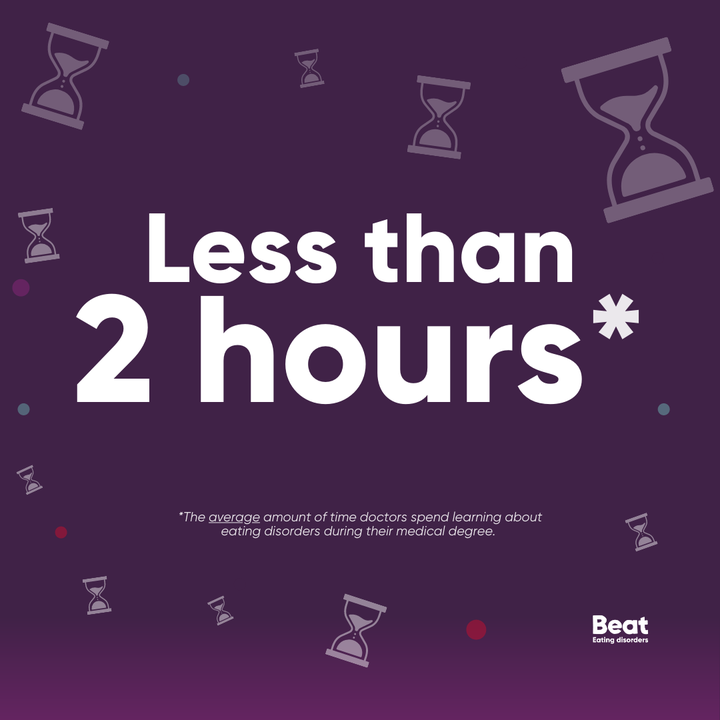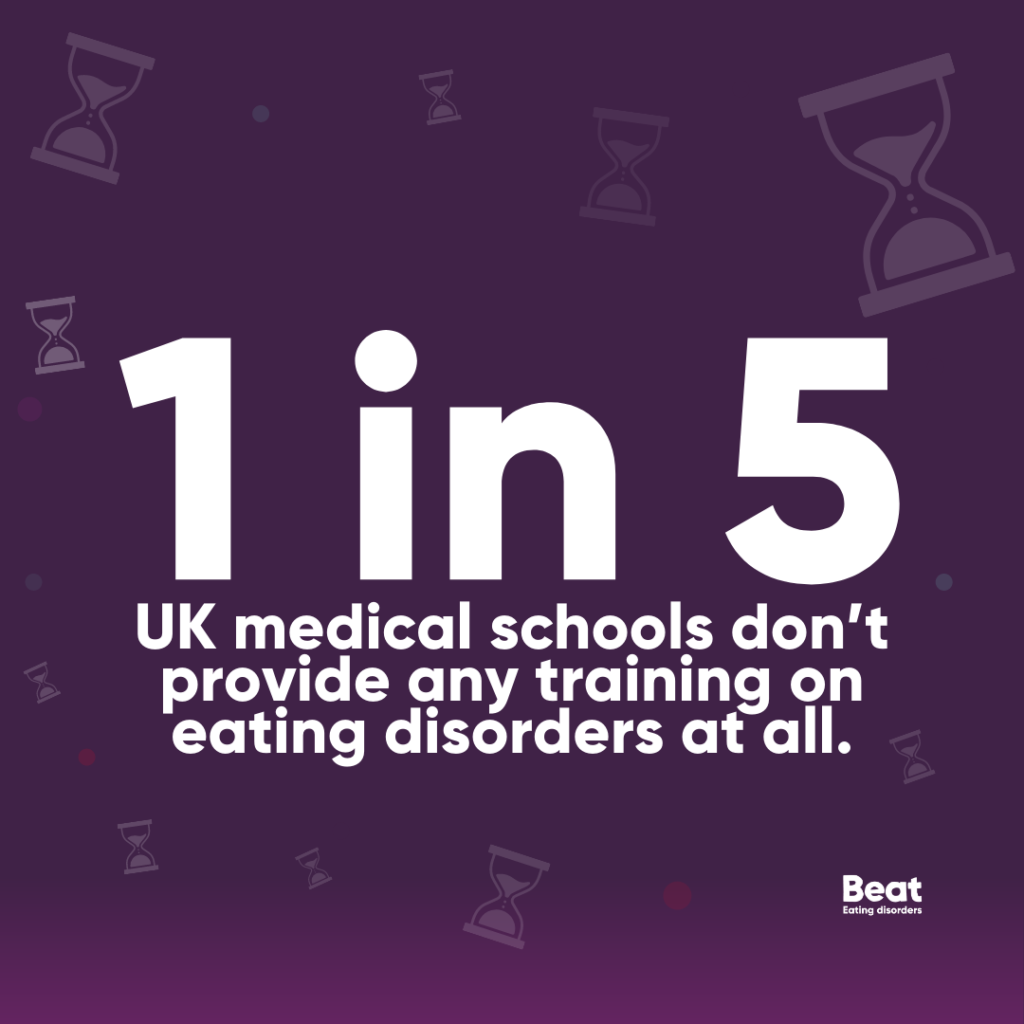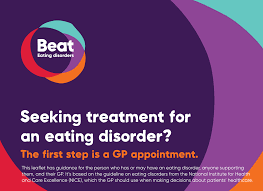For Eating Disorder Awareness Week 2022, eating disorder charity BEAT are campaigning to ensure that there is correct and adequate training on eating disorders available to health professionals and for all UK medical schools to introduce proper training.

It is estimated that 1.25 million people in the UK have an eating disorder, with many more cases slipping under the radar. Delay in identifying and diagnosing eating disorders causes significant distress to the sufferer and health care system because early intervention would likely to lead to better treatment outcomes.
GPs are often the first port of call when someone notices a problem with their physical or mental health. Unfortunately, doctors may not always be able to spot the signs and symptoms of an eating disorder due to insufficient training. Eating disorder charity BEAT found that medical students receive less than two hours training on eating disorders during their entire degree and a fifth of UK medical schools don’t provide any training on the topic at all.

Although there are criteria for the diagnosis of eating disorders set out in the Diagnostic Statistical Manual, most of those diagnosed fall into the ‘eating disorder not otherwise specified’ category, which means that some but not all of the criteria are met for classified eating disorders such as anorexia, bulimia and binge eating disorder. Doctors who have little training or experience supporting those with an eating disorder may overlook cases that do not fit typical presentations, which can have hugely negative implications for patients. For example, research suggests that those with ‘atypical anorexia’, who show the symptoms of anorexia nervosa such as a preoccupation with food and body image, reduction in food intake and denial of the problem, with weight loss placing them in the ‘healthy’ or above BMI categories show similar unstable vital signs, abnormal lab tests and malnourishment as someone who’s weight has dropped to ‘underweight’.
Furthermore, doctors are heavily trained in the medical model to look for the physical causes of disease or ill-health. Eating disorders are often accompanied by physical symptoms such as issues with digestive and heart function, as well as complications from malnutrition (e.g., dizziness, low-energy, and amenorrhea) or self-induced vomiting (e.g., such as dental erosion and heartburn), which may be investigated before mental health diagnoses, thereby delaying identification of an eating disorder.
When I experienced orthorexia and bulimia in my early 20’s, my BMI was at lower-end of ‘healthy’ and I wonder if this delayed diagnosis of an eating disorder. I was very health conscious, eating in a way that I thought was healthy and working out daily, so I was worried when my periods became irregular, my hair was falling out and I regularly had bad stomach aches. I sought help from my GP, who ordered blood tests and carried out some investigations into my physical health. It wasn’t until six months later when I saw a different doctor that I was asked about my relationship with food and the topic of eating disorders was approached.
To make things more complicated for doctors to diagnose eating disorders, patients may intentionally not volunteer the information necessary to make a diagnosis during their consultation. This could be because of perceived shame and stigma of eating disorders, as well as a reluctance to accept treatment and let-go of thoughts or behaviours related to the disorder, which are currently a coping mechanism. For example, even though my family kept telling me that they were worried about me because of how I was eating and how much I worked out, I didn’t want to accept that I had an issue. I realised the negative impact that some of my thoughts and behaviours were having on my quality of life, and so part of me wanted to get help, but part of me was terrified to eat more and reduce exercise because of how it might affect my weight. I was in denial and didn’t want to come out of denial and be honest with the doctors about my disordered eating and exercise behaviours.
Patients may also unintentionally not give important information to their doctor during a consultation, if they are unaware that their thoughts or behaviour are signs of an eating disorder. In fact, a YouGov survey found that more than one in three adults in the UK could not name any signs or symptoms of eating disorders.
Common signs and symptoms of eating disorder to be aware of
Although everyone who experiences an eating disorder will experience it in a unique way, there are some thoughts and feelings towards food, as well as observable behaviours that may indicate an issue.
- Hyper-focus or preoccupation with food
- Restrictive eating and/or feeling out of control around food
- Rigid food rules that must be adhered to despite any inconvenience caused
- Feelings of anxiety, guilt and shame towards food
- Purging after meals, via vomiting, laxatives and/or diuretics
- Compulsive exercise as a means of weight or anxiety control
How to seek help

If you think you might have a problematic relationship with food or exercise, then tell the receptionist when booking your doctor’s appointment so that you can be seen by a GP who has more training or experience in the area. You can also reach out directly to a therapist or dietician who is specifically trained in eating disorders and recovery.

leave a comment
share
share
share
share
share